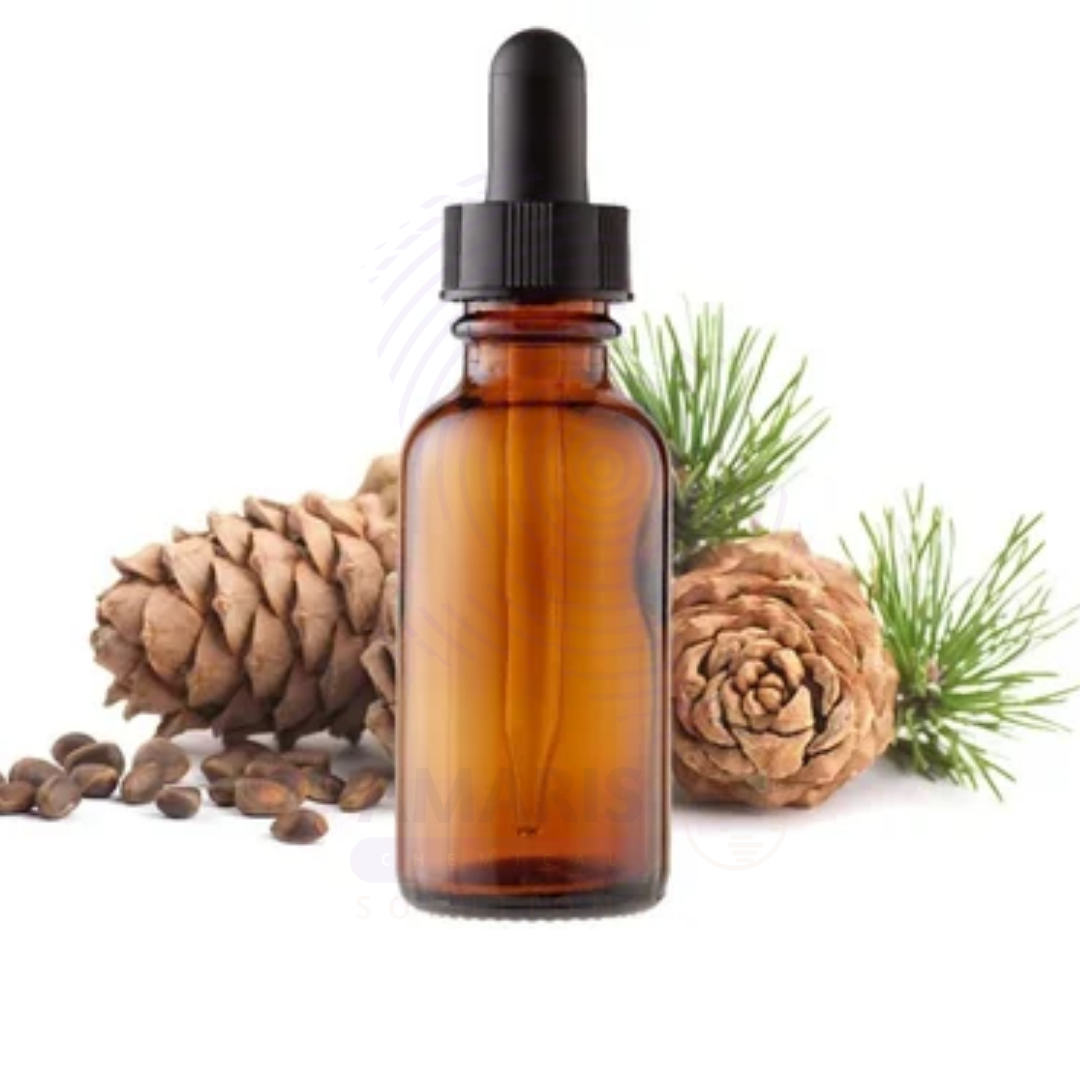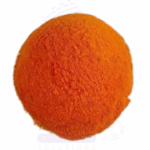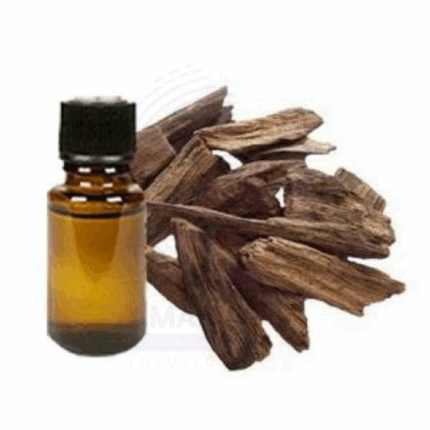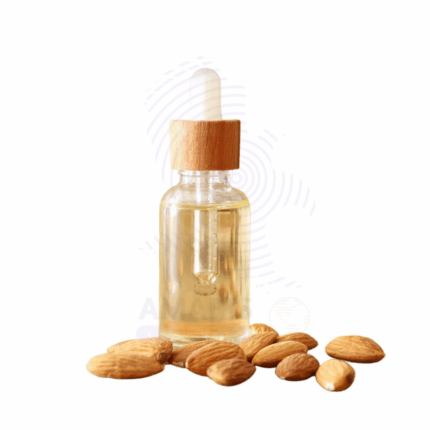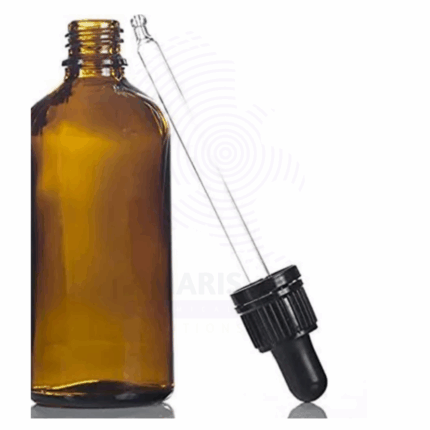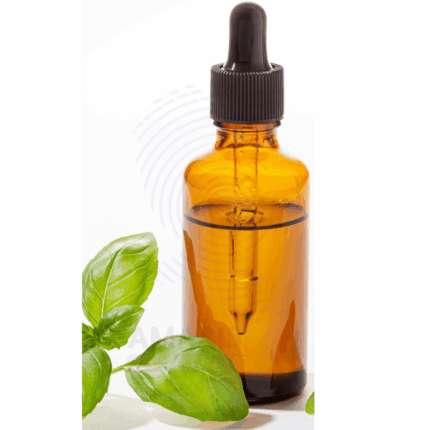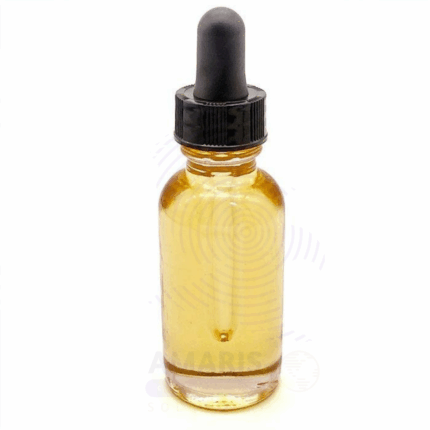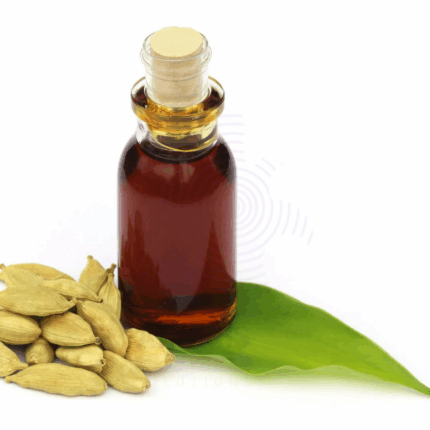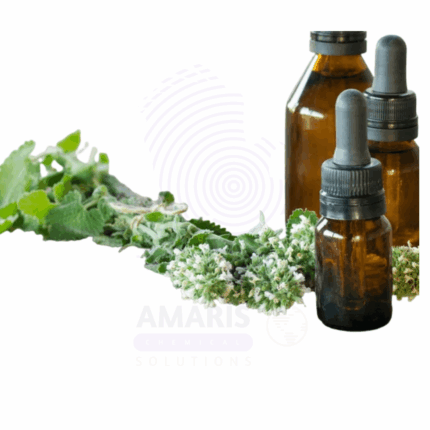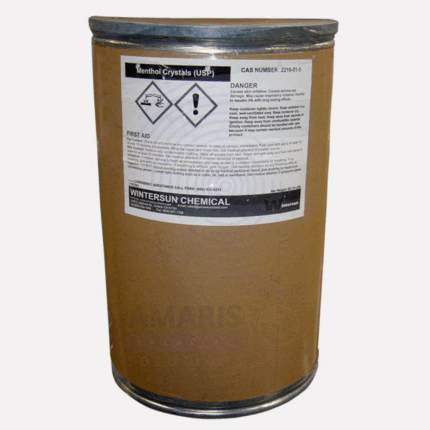Back to products


Ammonium Hydrogen Carbonate Extra Pure
$ 18.00 Original price was: $ 18.00.$ 17.54Current price is: $ 17.54.
Cedarwood Oil
Whatsapp Order
Cedarwood Oil is an essential oil extracted primarily through steam distillation of the wood, stumps, or sawdust of various cedar tree species, most commonly Cedrus atlantica, Juniperus virginiana, or Cedrus deodara. It features a warm, woody, balsamic aroma with subtle earthy notes. Rich in sesquiterpenes and cedrol, Cedarwood Oil is widely valued for its calming, antiseptic, insecticidal, and anti-inflammatory properties. It finds diverse applications in cosmetics, aromatherapy, natural perfumery, household cleaning, and agricultural pest control. Its grounding scent and skin benefits make it a common base note in personal care and wellness formulations.
Description
Table of Contents
Toggle
Cedarwood Oil
Primary Uses
- Cosmetics and Personal Care
- Used in hair care products to promote scalp health and reduce dandruff
- Added to beard oils, balms, and men’s grooming products for fragrance and skin support
- Incorporated into body lotions and creams for calming, anti-inflammatory effects
- Included in natural deodorants for odor-neutralizing and antibacterial properties
- Common in handmade soaps and perfumes for its woody, masculine scent
- Used in facial oils and acne treatments for its astringent and skin-toning effects
- Aromatherapy
- Diffused to promote relaxation, reduce anxiety, and improve sleep quality
- Used in massage oils to ease tension, improve circulation, and reduce inflammation
- Blended into grounding and meditative oil blends for emotional balance
- Cleaning and Household Products
- Added to natural surface cleaners and sprays for antimicrobial and deodorizing effects
- Used in air fresheners and linen sprays for its calming and earthy aroma
- Incorporated into furniture polish and wood care products as a scent and preservative
Secondary Uses
- Insect Repellents
- Acts as a natural repellent against mosquitoes, moths, and fleas
- Used in pet sprays, wardrobe sachets, and outdoor candles to repel pests
- Agricultural and Veterinary Use
- Used in formulations to deter insects in organic farming and pest control
- Sometimes applied in diluted form for livestock bedding to repel flies and parasites
- Perfumery and Fragrance Industry
- Widely used as a fixative and base note in perfumery, especially in woody and oriental blends
- Provides depth and longevity to natural fragrance formulations
- Traditional and Alternative Wellness
- Historically used in Ayurveda for treating respiratory issues, inflammation, and skin ailments
- Applied in diluted topical blends for arthritis, eczema, and minor wounds
KEY PRODUCT FEATURES
1. Basic Identification Attributes
- Botanical Source: Cedrus atlantica, Juniperus virginiana, Cedrus deodara
- Common/Trade Name: Cedarwood Oil
- INCI Name: Varies by species (e.g., Cedrus Atlantica Bark Oil)
- CAS Number: 8000-27-9
- HS Code: 3301.29
- Synonyms: Atlas Cedar Oil, Virginian Cedarwood Oil, Himalayan Cedar Oil
2. Physical & Chemical Properties
- Physical State: Liquid
- Color & Odor: Pale yellow to amber; warm, woody, balsamic, and slightly smoky scent
- Solubility: Insoluble in water; soluble in alcohol and fixed oils
- Main Components: Cedrol, alpha-cedrene, beta-cedrene, thujopsene
- Refractive Index: ~1.500 – 1.520
- Specific Gravity: ~0.940 – 0.980
- Flash Point: ~65–80°C
3. Safety & Hazard Attributes
- GHS Classification: May cause skin irritation in undiluted form
- Toxicity: Low; safe when properly diluted
- Allergen Information: Generally non-sensitizing when used appropriately
- Exposure Limits: Follow dermal usage limits per IFRA recommendations
4. Storage & Handling Attributes
- Storage Conditions: Keep in cool, dry, well-ventilated area away from direct sunlight
- Container Type: Amber glass bottles or inert metal drums
- Shelf Life: 2–4 years when stored properly
- Handling Precautions: Use gloves; avoid prolonged contact with eyes or mucous membranes
5. Regulatory & Compliance Attributes
- Approved for use in cosmetics and personal care formulations
- IFRA-compliant when used within recommended concentration limits
- Not intended for internal medicinal use
6. Environmental & Health Impact
- Biodegradability: Readily biodegradable
- Ecotoxicity: Low when used in standard dilutions
- Bioaccumulation: Not expected
SAFETY HANDLING PRECAUTIONS
Safety Handling Precautions
- PPE Required: Gloves and eye protection during bulk handling
- Handling Guidelines: Use in diluted form; keep away from ignition sources
First Aid Measures
- Inhalation: Move to fresh air; consult physician if irritation occurs
- Skin Contact: Wash with soap and water; discontinue use if irritation develops
- Eye Contact: Rinse with clean water; seek medical advice if symptoms persist
- Ingestion: Rinse mouth; do not induce vomiting; seek immediate medical attention
Firefighting Measures
- Fire Hazards: Combustible; avoid ignition sources
- Extinguishing Media: Foam, dry chemical, CO₂
- Special Precautions: Use self-contained breathing apparatus
- Hazardous Combustion Products: Carbon oxides and aromatic vapors
Related products
Agarwood oil
Agarwood oil, also known as Oudh Oil, is a rare and luxurious essential oil derived from the heartwood of the Aquilaria tree, primarily found in Southeast Asia. This dark, viscous oil is extracted through steam distillation of infected wood—formed when the tree produces a dark, aromatic resin in response to fungal attack. The resulting oil is one of the most precious and complex natural fragrances in the world, known for its deep, woody, smoky, and slightly sweet aroma.
Agarwood Oil is widely revered in perfumery, spiritual rituals, and traditional medicine. Its rich olfactory profile and fixative qualities make it an indispensable ingredient in high-end perfumes and incense. Additionally, it is used in skin care, wellness therapies, and emotional balancing practices due to its grounding, calming, and meditative effects. Agarwood Oil is produced in extremely limited quantities, which adds to its exclusivity and value.
Almond Fragrance Oil
Almond Fragrance Oil is a synthetic or naturally blended aromatic compound designed to replicate the warm, sweet, and nutty scent of almonds. It may incorporate notes of marzipan, vanilla, or cherry-like tones to mimic the characteristic aroma of bitter almonds without the presence of cyanogenic compounds. Unlike essential oils, fragrance oils are created for consistent aroma performance and are widely used across cosmetics, personal care, household products, and scented formulations.
This versatile oil delivers a nostalgic, comforting scent often associated with desserts, cleanliness, and warmth. It is valued for its stability in soaps, lotions, candles, and air care products. Almond Fragrance Oil is typically formulated to be allergen-compliant and IFRA-certified for safe use across applications.
Basil Exotic oil
Basil Exotic Oil is a steam-distilled essential oil extracted from the leaves of the Ocimum basilicum plant, specifically cultivated for its high linalool and methyl chavicol (estragole) content. Known for its sweet, herbaceous, and slightly spicy aroma, Basil Exotic Oil offers powerful aromatic and therapeutic properties. It is widely used in perfumery, cosmetics, personal care products, and aromatherapy for its stimulating, clarifying, and refreshing effects.
The oil’s high potency and distinctive scent make it a preferred choice in high-end fragrances, hair care products, and massage blends. It is also appreciated for its antibacterial, antifungal, and anti-inflammatory characteristics, making it valuable in natural wellness and skincare formulations.
Basil sweet oil
Basil Sweet Oil is a high-quality essential oil extracted via steam distillation from the leaves and flowering tops of the Ocimum basilicum plant, known as Sweet Basil. This chemotype is rich in linalool and low in estragole, making it gentler and more suitable for topical use than other basil varieties. With a fresh, sweet, herbaceous, and slightly floral aroma, Basil Sweet Oil is highly valued in cosmetics, personal care, aromatherapy, and natural wellness formulations.
This essential oil is known for its clarifying, uplifting, and antiseptic properties. It supports mental clarity, soothes muscular tension, and offers anti-inflammatory and antimicrobial benefits for skin and scalp. Basil Sweet Oil is especially preferred in formulations targeting sensitive skin and emotional well-being.
Calmintha Oil
Calmintha Oil is an aromatic essential oil derived through steam distillation of the aerial parts of Calamintha nepeta or closely related species within the Calamintha genus. Also known as lesser calamint, Calmintha is a herbaceous plant known for its minty, slightly camphoraceous fragrance with subtle floral undertones. The oil is rich in compounds such as pulegone, menthone, and isomenthone, which contribute to its invigorating, clarifying, and antimicrobial properties.
Used in traditional herbal medicine, perfumery, and aromatherapy, Calmintha Oil offers refreshing aromatic effects and is frequently utilized in respiratory blends, skin formulations, and natural cleaning products. Due to its high pulegone content, topical use should be limited and well-diluted.
Cardamon Oil
Cardamon Oil is a premium essential oil steam-distilled from the seeds of Elettaria cardamomum, a plant native to India and Sri Lanka and widely cultivated across tropical regions. It carries a warm, spicy-sweet aroma with hints of eucalyptus and citrus, and ranges from colorless to pale yellow in appearance. Known for its digestive, antiseptic, expectorant, and uplifting qualities, it is valued in aromatherapy, perfumery, cosmetics, pharmaceuticals, and food applications.
Rich in compounds like cineole (1,8-cineole), α-terpineol, and linalyl acetate, Cardamom Oil provides both flavor and therapeutic effects, making it a versatile ingredient across several industries.
Catnip Oil
Catnip Oil is a highly aromatic essential oil steam-distilled from the leaves and flowering tops of Nepeta cataria, a herbaceous plant from the mint family. Known for its characteristic minty, herbaceous, and slightly sweet scent, Catnip Oil contains nepetalactone, a compound recognized for its insect-repellent and calming properties. Though commonly associated with its euphoric effects on cats, Catnip Oil is widely used in aromatherapy, natural insect repellents, and personal care products for humans. It also finds niche applications in pet care formulations and herbal preparations.
Menthol crystals
Menthol Crystals are natural organic compounds derived from peppermint or other mint oils, presenting as clear or white crystalline solids with a strong, cooling mint aroma. They possess analgesic, antiseptic, and flavoring properties. Widely used in pharmaceuticals, cosmetics, food, and personal care products, menthol crystals provide a refreshing cooling sensation and fragrance, enhancing product efficacy and consumer appeal.


 Preservatives(food)
Preservatives(food) Flavor Enhancers
Flavor Enhancers Acidulants
Acidulants Sweeteners
Sweeteners Antioxidants
Antioxidants Colorants(food)
Colorants(food) Nutraceutical Ingredients (food)
Nutraceutical Ingredients (food) Nutrient Supplements
Nutrient Supplements Emulsifiers
Emulsifiers
 Collectors
Collectors Dust Suppressants
Dust Suppressants Explosives and Blasting Agents
Explosives and Blasting Agents Flocculants and Coagulants
Flocculants and Coagulants Frothers
Frothers Leaching Agents
Leaching Agents pH Modifiers
pH Modifiers Precious Metal Extraction Agents
Precious Metal Extraction Agents
 Antioxidants(plastic)
Antioxidants(plastic) Colorants (Pigments, Dyes)
Colorants (Pigments, Dyes) Fillers and Reinforcements
Fillers and Reinforcements Flame Retardants
Flame Retardants Monomers
Monomers Plasticizers
Plasticizers Polymerization Initiators
Polymerization Initiators Stabilizers (UV, Heat)
Stabilizers (UV, Heat)
 Antifoaming Agents
Antifoaming Agents Chelating Agents
Chelating Agents Coagulants and Flocculants
Coagulants and Flocculants Corrosion Inhibitors
Corrosion Inhibitors Disinfectants and Biocides
Disinfectants and Biocides Oxidizing Agents
Oxidizing Agents pH Adjusters
pH Adjusters Scale Inhibitors( water)
Scale Inhibitors( water)
 Antioxidants(cosmetic)
Antioxidants(cosmetic) Emollients
Emollients Fragrances and Essential Oils
Fragrances and Essential Oils Humectants
Humectants Preservatives
Preservatives Surfactants(cosmetic)
Surfactants(cosmetic) Thickeners
Thickeners UV Filters
UV Filters
 Fertilizers
Fertilizers Soil Conditioners
Soil Conditioners Plant Growth Regulators
Plant Growth Regulators Animal Feed Additives
Animal Feed Additives Biostimulants
Biostimulants Pesticides (Herbicides, Insecticides, Fungicides)
Pesticides (Herbicides, Insecticides, Fungicides)
 Active Pharmaceutical Ingredients (APIs)
Active Pharmaceutical Ingredients (APIs) Excipients
Excipients Solvents(pharmaceutical)
Solvents(pharmaceutical) Antibiotics
Antibiotics Antiseptics and Disinfectants
Antiseptics and Disinfectants Vaccine Adjuvants
Vaccine Adjuvants Nutraceutical Ingredients (pharmaceutical)
Nutraceutical Ingredients (pharmaceutical) Analgesics & Antipyretics
Analgesics & Antipyretics
 Analytical Reagents
Analytical Reagents Solvents(lab)
Solvents(lab) Chromatography Chemicals
Chromatography Chemicals Spectroscopy Reagents
Spectroscopy Reagents microbiology-and-cell-culture-reagents
microbiology-and-cell-culture-reagents Molecular Biology Reagents
Molecular Biology Reagents Biochemical Reagents
Biochemical Reagents Inorganic and Organic Standards
Inorganic and Organic Standards Laboratory Safety Chemicals
Laboratory Safety Chemicals Specialty Laboratory Chemicals(Special Laboratory Equipment)
Specialty Laboratory Chemicals(Special Laboratory Equipment)
 Demulsifiers
Demulsifiers Hydraulic Fracturing Fluids
Hydraulic Fracturing Fluids Scale Inhibitors(oil)
Scale Inhibitors(oil) Surfactants(oil)
Surfactants(oil) Drilling Fluids
Drilling Fluids
 Dyes and Pigments
Dyes and Pigments Bleaching Agents
Bleaching Agents Softening Agents
Softening Agents Finishing Agents
Finishing Agents Antistatic Agents
Antistatic Agents
 Admixtures
Admixtures Waterproofing Agents
Waterproofing Agents Sealants and Adhesives
Sealants and Adhesives Curing Compounds
Curing Compounds Concrete Repair Chemicals
Concrete Repair Chemicals Anti-Corrosion Coatings
Anti-Corrosion Coatings
 Surfactants(cleaning)
Surfactants(cleaning) Builders
Builders Enzymes
Enzymes Solvents (Cleaning)
Solvents (Cleaning) Fragrances
Fragrances
 Electronic Chemicals
Electronic Chemicals Catalysts
Catalysts Lubricants
Lubricants Photographic Chemicals
Photographic Chemicals Refrigerants
Refrigerants Automotive chemicals
Automotive chemicals Pyrotechnic Chemicals
Pyrotechnic Chemicals
 Biodegradable Surfactants
Biodegradable Surfactants Bio-based Solvents
Bio-based Solvents Renewable Polymers
Renewable Polymers Carbon Capture Chemicals
Carbon Capture Chemicals Wastewater Treatment Chemicals
Wastewater Treatment Chemicals
 Pigments
Pigments Solvents(paint)
Solvents(paint) Specialty Coatings
Specialty Coatings Binders/Resins
Binders/Resins Additives
Additives Driers
Driers Anti-Corrosion Agents
Anti-Corrosion Agents Functional Coatings
Functional Coatings Application-Specific Coatings
Application-Specific Coatings
 Fresh Herbs
Fresh Herbs Ground Spices
Ground Spices Whole Spices
Whole Spices Spice Blends
Spice Blends Dried Herbs
Dried Herbs
 Leavening Agents
Leavening Agents Dough Conditioners
Dough Conditioners Flour Treatments
Flour Treatments Fat Replacers
Fat Replacers Decoratives
Decoratives Preservatives(baking)
Preservatives(baking)
 Plasticizers & Softeners
Plasticizers & Softeners Reinforcing Agents
Reinforcing Agents Adhesion Promoters
Adhesion Promoters Vulcanizing Agents
Vulcanizing Agents Antidegradants
Antidegradants Blowing Agents
Blowing Agents Fillers & Extenders
Fillers & Extenders Accelerators & Retarders
Accelerators & Retarders